#myths and fairytales
Explore tagged Tumblr posts
Text
Return of the Return of the Repod Wrangle

A missing scene from Star Trek La Sirena. We know that Cris Rios and Agnes Jurati had a one night stand, and were hella awkward after. How exactly did that go…? Also of note as the fic that got me saddled with a bit of cursed worldbuilding. (If you know, you know.)

A very sweet and gentle talk between Data and Tasha about the great beings they saw in the very first episode, and about existing in a society, and about being kind…

Imma going to call this one cursed not because it’s a bad fic – it’s lovely! an angel and a demon bonding through text messages and spying – but because Past!Me decided to polish it in a very SFX-heavy way, and Present!Me doesn’t like being one-upped by the old fogies of three years ago. In any case, here ‘tis, large as life and a bit more mellow. Bing!

There are a couple of minor characters in the very fucked up, very good novel The Dumb Husky and His White Cat Shizun who perform gender in very particular ways. Or maybe it’s not gender maybe they’d always be like that, or safer, or kinder. It’s a story about doom, maybe. Not love, of course. Did you hear anyone say it was about love?

I wrote this set of stories during my country’s first Lockdown, when I badly needed a distraction, as part of an on-line game based on The Decameron. Ten days, each day has a theme and all the players make up a story on it.
Mine often raided existing myths and fairytales, in the grand tradition of The Decameron and other older story collections, though “The Fool Who Met Death” was completely original. I am unreasonably delighted with my version of “Stone Soup”. (‘Who wouldn’t give up just one bunch of carrots for the Tuscany variant…?’)
And it was, it brought back a lot of feelings, revisiting these.
Anyway, enjoy! enjoy! (if you choose to enjoy, and if you don’t that’s just fine. Hope you have a beautiful day.)
#podfic#repod wrangle#repod#star trek tng#star trek picard#myths and fairytales#the dumb husky and his white cat shizun#star trek la sirena
3 notes
·
View notes
Text
This is how the crow evolves into an ominous supernatural entity and I am HERE for it!
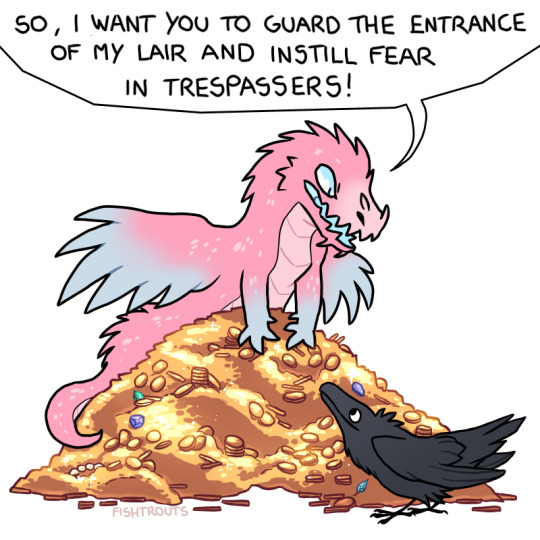
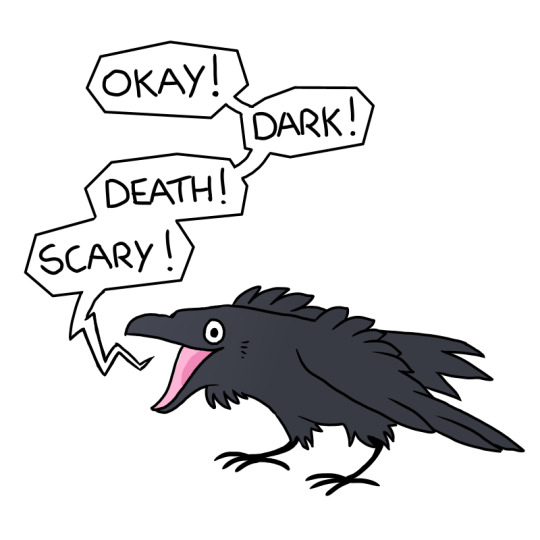
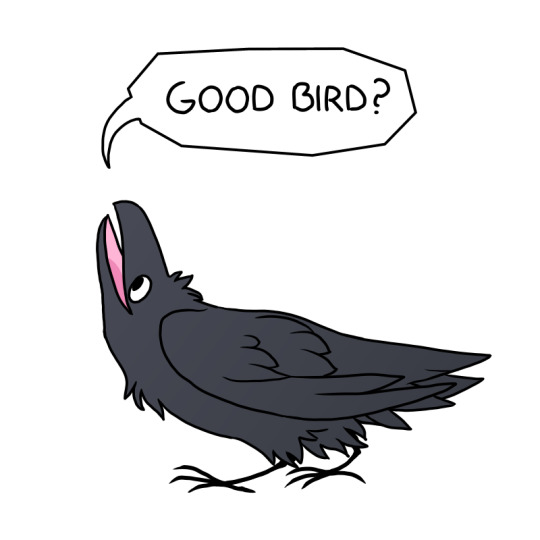
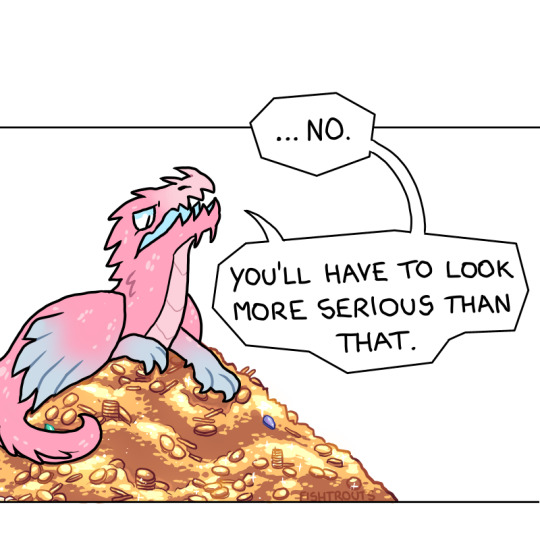

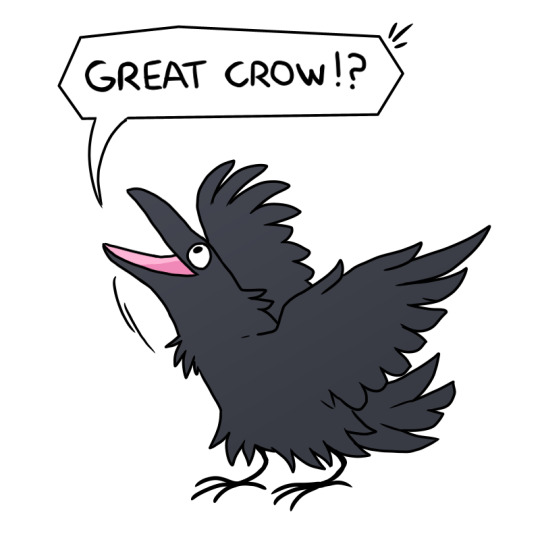
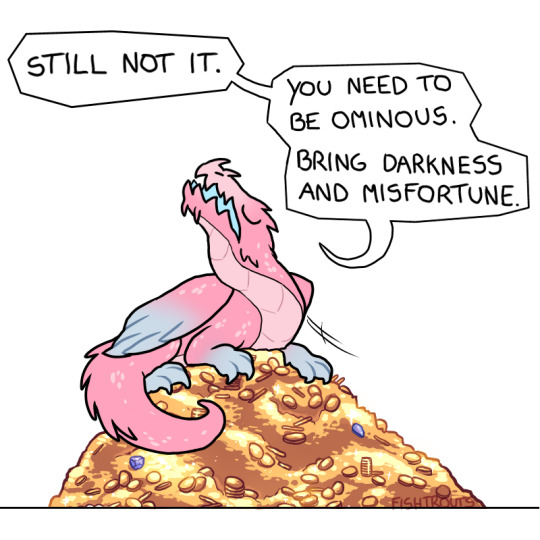
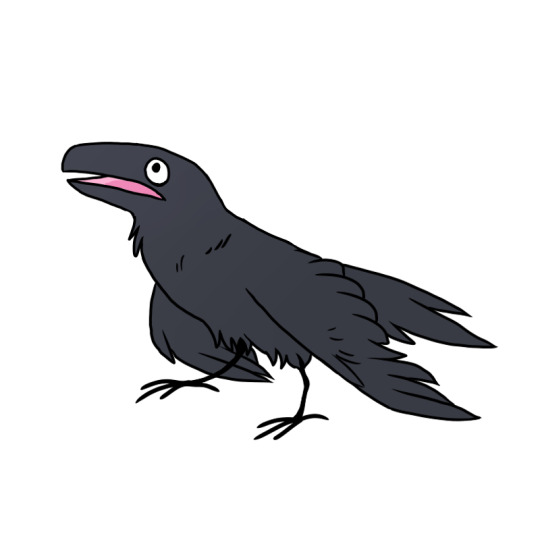
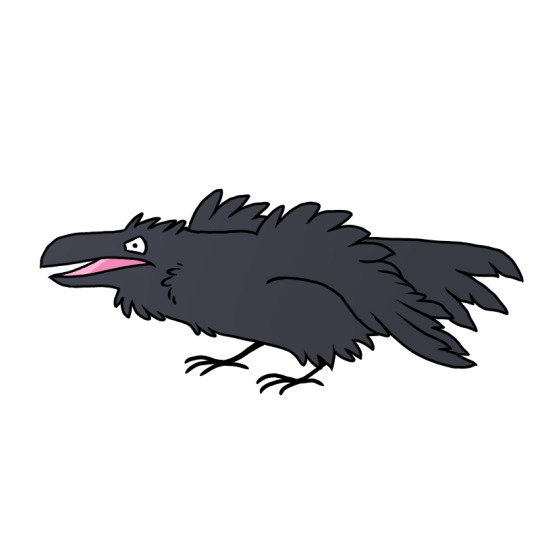
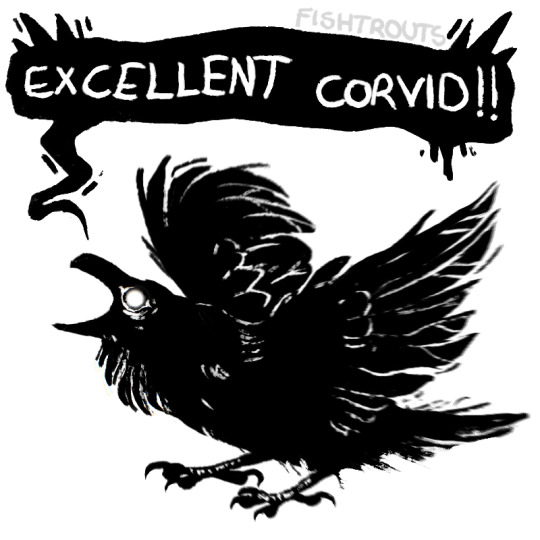
Ominous..
90K notes
·
View notes
Text
begging everybody i know to listen to myth side one by the narcissist cookbook right now. going feral over it even. rabid. foaming at the mouth.
fairytales + mythology + folk punk + THE THEMES (you’re ok tumblr you know what i mean)
please. not even please just do it.
#the narcissist cookbook#myth side one#tnc myth side one#the narcissist cookbook myth side one#folk punk#spoken word#fairytales#ananke#mythology
298 notes
·
View notes
Text
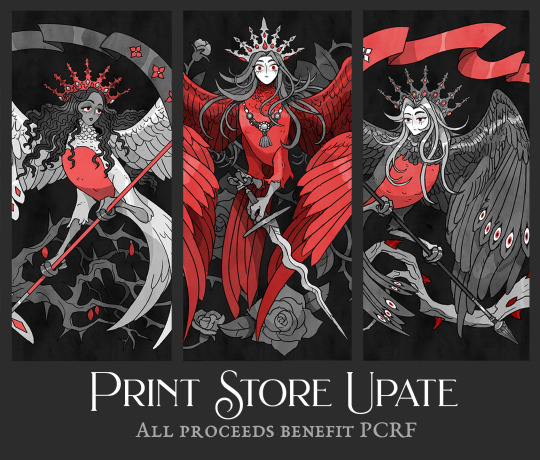
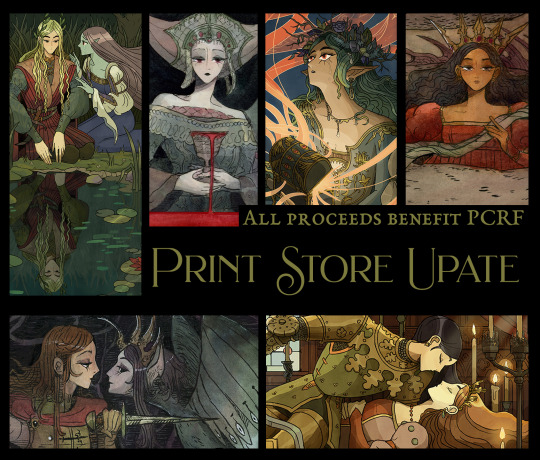
I've added new pieces to my print store! 100% of profits will go to the Palestine Children's Relief Fund until there is a ceasefire, including all of my current balance. Thanks!
768 notes
·
View notes
Text

Vestige.
#art#my art#my artwork#artwork#artists on tumblr#traditional art#paint#painting#draw#drawing#illustration#watercolor#watercolour#gouache#markers#fantasy#fantasy ambient#dark fantasy#fairytale#myth#january#colorful
149 notes
·
View notes
Text
First- FANTASTIC analysis.
Also- names being connected to identity of self is ANCIENT. What we in the fantasy nerddom would call OLD MAGIC.
The most recognizable instance of this in folklore is the Fae that ask for your name and then steal it, leaving you hallow and unanchored, or magic users that have power over you as soon as they have your whole name.
It’s one of the more fun reasons we have middle names. Who knows your middle name? Generally your family and the government- the only people you willingly let have power over you. Otherwise, it’s meant to be a secret. 🤫
This has also been used subversively in more modern literature- you call out my true name to destroy or control me, but guess what? I no longer identify by that name. Those who love me - who TELL ME WHO I AM- call me something else. You have no power here. (will always recommend A Net of Dawn and Bones, that book is insanely good)
So, like most of Gaiman’s work, he uses very ancient mythological and folkloric concepts and applies them to modern relationships between people. And this is why I absolutely love him, despite struggling with his constant open endings.
Story threads that are ancient, that stick around this long, do so because there is something bone deep TRUE in them. Which is why I love old stories. And why stories from people like Neil Gaiman and Terry Prattchett hit you so hard- because these storytellers took stuff they already knew to be important and true and wove them into something modern enough to catch our attention. 👏 👏👏That is mastery right there.
In Coraline, there’s a recurring theme with names and identity, and I personally don't think it's talked about enough.
(As a note, this is dealing largely with the book, not the movie, although there are some hints of this theme in the movie as well)
Coraline’s neighbors constantly get her name wrong, calling her “Caroline” and not “Coraline”, to which she persistently corrects them. Despite her attempts, they never get it right, until chapter 10, in which Mr Bobo (Mr Bobinsky) finally gets it right.

"It's Coraline, Mister Bobo," said Coraline. "Not Caroline. Coraline." "Coraline," said Mr Bobo, repeating her name to himself with wonderment and respect. "Very good, Coraline."
It should be noted that, until this chapter, Coraline did not know Mr Bobo’s name either. In fact, it had never even occurred to her that he had a name. Up until then, she had just been thinking of him as “the crazy old man upstairs”, not as a person with a name. This moment, with her learning his name and him getting her name right, is a moment of genuine understanding and connection between the two, humanizing them both to each other.
Coraline’s other neighbors get her name wrong, which is representative of them not listening when she says anything, really, such as her telling Miss Spink and Forcible that her parents are missing and them literally not even acknowledging it at all??
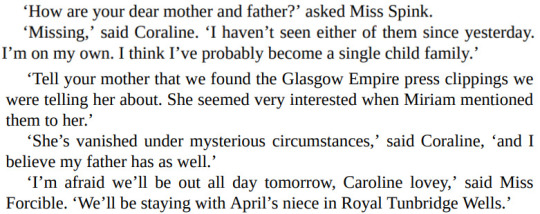
"How are your dear mother and father?" asked Miss Spink. "Missing," said Coraline. "I haven't seen either of them since yesterday. I'm on my own. I think I've probably become a single child family." "Tell your mother that we found the Glasgow Empire press clippings we were telling her about. She seemed very interested when Miriam mentioned them to her." "She's vanished under mysterious circumstances," said Coraline, "and I believe my father has as well." "I'm afraid we'll be out all day tomorrow, Caroline lovely," said Miss Forcible. "We'll be staying with April's niece in Royal Tunbridge Wells."
Mr Bobo gets her name right after being corrected (only after being corrected alongside her using his name, mind you, showcasing her making an effort to listen to and understand him as well), which is representative of him actually making an attempt to listen and understand her. This point is further illustrated by a conversation Coraline had with the Other Mr Bobo in chapter 10.

As Coraline entered he began to talk. "Nothing's changed, little girl," he said, his voice sounding like the noise dry leaves make as they rustle across a pavement. "And what if you do everything you swore you would? What then? Nothing's changed. You'll go home. You'll be bored. You'll be ignored. No one will listen to you, not really listen to you. You're too clever and too quiet for them to understand. They don't even get your name right."
He equates those in the real world not getting Coraline’s name right with them not listening to her, and fundamentally not understanding who she is. So, somebody getting her name right, then, shows them actually listening to her, and being willing to understand who she is.
The mice in the real world know more than they should be able to know, and they also get Coraline’s name right.

"The message is this. Don't go through the door." He paused. "Does that mean anything to you?" "No," said Coraline. The old man shrugged. "They are funny, the mice. They get things wrong. They got your name wrong, you know. They kept saying Coraline. Not Caroline. Not Caroline at all."
They seem to know about the other world, somehow, on some level, and the dangers it presents. Them getting her name right represents them knowing more than they should know, more than they are told. Animals in general seem to have this type of quality in Coraline, actually.
The cat does not have a name. It says so in chapter 4, that cats do not need names. It says that this is because cats know who they are. But humans need names, because they do not.

"Please. What's your name?" Coraline asked the cat. "Look, I'm Coraline. OK?" The cat yawned softly, carefully, revealing a mouth and tongue of astounding pinkness. "Cats don't have names," it said. "No?" said Coraline. "No," said the cat. "Now, you people have names. That's because you don't know who you are. We know who we are, so we don't need names."

The cat shook its head. "No," it said. "I'm not the other anything. I'm me." It tipped its head on one side; green eyes glinted. "You people are spread all over the place. Cats, on the other hand, keep ourselves together. If you see what I mean."
This shows that, in humans, names are connected to our identities and who we are. Names are used to individualize and distinguish ourselves from each other. But cats do not need names to recognize each other, or be recognized.

"Oh. It's you," she said to the black cat. "See?" said the cat. "It wasn't so hard recognising me, was it? Even without names."
With or without names, it is still the same cat.
During the Other Miss Spink and Forcible’s performance, in chapter 4, they begin quoting Shakespeare. The specific quotes that they use are interesting to me when looked at under this lens of the importance of names, especially Miss Forcible’s.

"What's in a name?" asked Miss Forcible. "That which we call a rose by any other name would smell as sweet."

"I know not how to tell thee who I am," said Miss Spink to Miss Forcible.
Now, of course, this is just them quoting Shakespeare. But. Why these quotes specifically? They’re at the very least notable when discussing Coraline’s recurring theme of names. Especially the quote about the rose. It makes me think of what the cat said earlier, about how cats are sure of who they are so they don’t need names, about how Coraline didn’t need the cat’s name to be able to recognize it for who/what it was.
But, of course, this does not apply for humans. We need our names to be able to know ourselves, to be able to tell others who they are.
In chapter 6, Coraline wakes up and is disoriented. This disorientation is compared to the feeling one might experience upon being suddenly pulled out of a daydream. In this comparison, forgetting one’s name is equated with forgetting who one is and where one is.

Sometimes Coraline would forget who she was while she was daydreaming that she was exploring the Arctic, or the Amazon rainforest, or darkest Africa, and it was not until someone tapped her on the shoulder or said her name that Coraline would come back from a million miles away with a start, and all in the fraction of a second have to remember who she was, and what her name was, and that she was even there at all. Now there was the sun on her face, and she was Coraline Jones. Yes.
The ghost children have also forgotten their names, and with it most of who they were. In chapter 7, when Coraline is locked behind the mirror in the Other World, one of the ghost children says that names are the first things that one forgets after death.

"Who are you?" whispered Coraline. "Names, names, names," said another voice, all faraway and lost. "The names are the first thing to go, after the breath has gone, and the beating of the heart. We keep our memories longer than our names. I still keep pictures in my mind of my governess on some May morning, carrying my hoop and stick, and the morning sun behind her, and all the tulips bobbing in the breeze. But I have forgotten the name of my governess, and of the tulips too." "I don't think tulips have names," said Coraline. "They're just tulips." "Perhaps," said the voice sadly. "But I have always thought that these tulips must have had names. They were red, and orange-and-red, and red-and-orange-and-yellow, like the embers in the nursery fire of a winter's evening. I remember them."
The ghost children may have their memories, but they have largely forgotten who they were. They may remember their tulips, and certain strong memories, but there is very, very little left of them, and they have forgotten who they once were, they have forgotten their names.

"That is why we could not leave here, when we died. She kept us, and she fed on us, until now we're nothing left of ourselves, only snakeskins and spider-husks. Find our secret hearts, young mistress."

"She will take your life and all you are and all you care'st for, and she will leave you with nothing but mist and fog. She'll take your joy. And one day you'll awake and your heart and soul will have gone. A husk you'll be, a wisp you'll be, and a thing no more than a dream on waking, or a memory of something forgotten."
The Other Mother stole their hearts and their souls and their selves. She stole who they were away from them, their identities and names and the names of those they loved, leaving nothing in her wake.
The same ghost that talked about the tulips and the names of the tulips struggles to answer when Coraline asks their gender, as well, and when they do eventually give an answer they seem somewhat unsure of it, as shown by the word choice of “perhaps” and “I believe”

"A boy, perhaps, then," continued the one whose hand she was holding. "I believe I was once a boy." And it glowed a little more brightly in the darkness of the room behind the mirror.
(I personally take this quote, specifically it "glow[ing] a little more brightly" after coming to this conclusion, to mean either that the ghost is happy at realizing that he was once a boy, or even to mean that he has become somewhat more tangible upon this realization; upon remembering something about his self, and his identity.)
As an aside, it's noteworthy to me that we never learn the Other Mother’s true name. She is simply “The Other Mother” and “The Beldam.” Never is an actual name applied to her, only titles. We do not truly know who, or what, she is. Beings without names are shrouded in mystery (or should i say mist-ery). The ghost children are benevolent mysterious beings, the cat is an ambivalent-leaning-helpful mysterious being, and the other mother is a distinctly malevolent mysterious being.

"Who are you?" asked Coraline. "I'm your other mother," said the woman.

"She?" "The one who says she's your other mother," said the cat. "What is she?" asked Coraline. The cat did not answer, just padded through the pale mist beside Coraline.
But in conclusion, names in Coraline are extremely important. I’m sure there’s probably more that I'm missing, and feel free to add onto this, but basically—
People need names to know and remember who they are, and forgetting one’s name is the first step to losing the rest of who one is. Names humanize a person; with a name, they are less shrouded in mystery, more clear.
Knowing somebody's name helps one connect to and better understand that person; it is the first step in getting to know them and see them as a full person, the transition from “the crazy man upstairs” to “Mr Bobo”. Names, to people at least, are one of the fundamental building blocks of who we are.
#felix's posts#coraline#neil gaiman#coraline jones#the other mother#the beldam#other mother#coraline 2002#coraline book#storytelling#gnu terry pratchett#names have meaning#names tell you who you are#which is why picking your own is so damn powerful#ancient wisdom#myths and fairytales#a net of dawn and bones#c chancey
1K notes
·
View notes
Text
Eyes of Gold (Part 4)
(A WukongxReader story inspired by Beauty and the Beast and Lutung Kasarung.) (First) (Prev) (Next)
Two days later, the rash was finally gone. The baths and medicine had cleansed it away, leaving healthy, itchless skin in its wake. You couldn’t be more relieved. Shihou endured your smothering hugs and endless thanks with grace and a smidge of pride.
With you now poison ivy free, the monkey was ready to show you the way up the mountain. You didn’t realize how literally he meant it until you were three hours into a grueling hike.
“How much further?” you whined, climbing up yet another set of stone steps. Shihou snickered where he sat waiting for you to catch up.
“Just a few more. Would you had preferred scaling the side of the mountain?”
You huffed, pausing to catch your breath. “No, but I wasn’t expecting a maze of staircases and secret tunnels. Did Monkey King find all these?”
“Actually, he made most of them,” Shihou said, leading the way down a side passage. “Fruit and Flower Mountain has seen plenty of battles and having a backdoor comes in handy.”
Glowing moss along the walls offered some light but you still kept close to Shihou. With so many twists and turns, getting lost would be all too easy. After another flight of stairs and a few more tight tunnels, Shihou finally stopped by an unassuming patch of stone.
“Here we are!”
You glanced at the rocky surface then back at him. “Where exactly is here?”
With a smirk, Shihou pushed the wall aside. Instead of stone like you first assumed, a cloth was brushed away, revealing a brightly lit hallway on the other side. You stepped out into the light, letting your eyes adjust while also enjoying the fresh air. Behind you, a woven tapestry fell back into place, covering the secret doorway without a trace.
Once you could properly see, you found yourself in a corridor, one side dotted with large windows streaming in sunlight. Lining the opposite wall were statues, murals, and hanging weapons interspaced between ornate doors. Despite being carved from the mountain itself, the stone palace was just as regal and intricate as any human-made castle.
“Your room is over here, peach friend! Come take a look!” Shihou called from down the hall. He was nearly hopping from excitement by the time you joined him in front of the open door. “What do you think?”
The room was huge, a carefully carved cavern with artistic details etched into the very walls. Rosewood furniture adorned the space, expertly crafted and polished to a mirror shine. The wardrobe tucked in the corner revealed silk robes similar to your first gifted set. A bowl of fruit and bouquet of colorful flowers decorated a small side table. You were most excited to see a real bed, plush with a downy mattress and covered in embroidered blankets and furs. The whole space glowed by the light of the bay window leading out to an overlooking balcony.
Of all the things you expected from a mountain palace full of demons, such royal accommodations were beyond your wildest dreams. “It’s beautiful! Look at this view!”
Being so high up was breathtaking and dizzying all at once. The whole of Fruit and Flower Mountain stretched before you all the way down to the edge of the forest. Cascading green hills plummeted alongside the thunderous waterfall. Above the canopy of trees, white clouds drifted through the endless blue sky. You were so enthralled by the sight, Shihou had to tug you back by your robes before you could tumble over the balcony railing.
“Careful! Wouldn’t want an accident before the King announces your arrival.”
“He’s announcing my arrival?” you repeated in disbelief.
“Of course!” Shihou chirped, leading you back into the room. With your weary body weighted down by the sudden news, the bed looked more inviting than ever. You all but flopped down on the mattress, sighing into the cloud-like comfort. The weight on the blankets shifted as Shihou hopped up to sit next to you. “The King wants to formally welcome you while also making the others aware of your presence. Best way to avoid any mishaps.”
“If you say so,” you hummed, glancing over to him. “Any other surprises I should know?”
“Well actually, there was something I’ve been meaning to tell you…” Shihou suddenly looked quite contrite, avoiding your gaze as he scratched at the back of his head. “But you have to promise not to panic or get angry. Okay?”
You raised a brow. “Is it that bad?”
“Probably not,” he said though his frown wasn’t very convincing. “Just…try not to hate me?”
Before you could respond, Shihou jumped off the bed and scurried to the center of the room. You sat up to watch him, suddenly worried by whatever was about to happen. He took a slow breath, so focused even his tail was still. In a quick nod, a cloud of smoke enveloped him with a startling pop. You jumped to your feet, coughing and waving the haze from your face. As fast as it appeared, the cloud settled, leaving you blinking as a shrouded figure came into view.
“Ta-dah!”
Where Shihou had once been was now stood a demon. He was slightly taller than you, wearing simple pants and robes tied with a belt. The overall appearance was nearly human but his fur, tail, and bare feet were monkey-like. A nervous smile played across his simian face while he waited for your reaction. Only the familiar golden gaze kept full blown panic at bay.
“Shihou?” you asked after a tense moment.
“Yep! It’s me! Just a little taller now. And with clothes,” he smirked but there was still a cautious edge to it. “You’re not going to freak out, right?”
Your arms flailed in bewilderment, grasping for understanding. “First you can talk, and now this? I thought you were just a regular monkey!” Your hands covered your face, mind whirling with every awkward conversation you had with him. “How? Why?”
Shihou looked a bit sheepish at your confusion. “I didn’t mean to lie. When I found you, I disguised myself so I wouldn’t scare you and I wasn’t sure how to bring it up afterwards. Now that you’re here, you’ll be seeing a lot more demons around so I might as well be the first.”
A deafening silence filled the room as you processed the monkey’s confession. The longer you stared, the more nervous he became, tail twitching as he fidgeted in place.
“Are you mad at me, peach friend?” he asked, gold eyes wide and pleading. Despite the larger demon form, he managed to look quite pitiful in his remorse.
You sighed and shook your head. “You’re lucky you’re still cute.”
“Aww,” he cooed, his smile sharpening to a cheeky grin. “You think I’m cute?”
His teasing turned to full blown laughter at your unamused glare. “Don’t push it. I’m already embarrassed I carried you around for three days.”
“How about I carry you next time to make it up to you?” Shihou chuckled at your mortified blush. “Anyways, now that you know, it’ll be easier to show you around. For now, you should rest while I let the King know you’ve arrived. Will you be okay while I’m gone?”
The idea of being left by yourself in an unfamiliar demon palace was unnerving but you nodded anyways. Shihou sensed your hesitation and placed his now much larger hand on your shoulder. “I won’t be long. Once everyone’s gathered, I’ll come get you for the announcement.”
With a final wave and a quick wink, Shihou whisked out of the room. Alone with your reeling thoughts, you laid back on the bed to study the carved ceiling. Soon enough, you felt the fatigue of the day pull you into dreams filled with underground labyrinths, demons in disguise, and the looming presence of the infamous mountain king.
#Journey to the West#JTTW#Monkey King#Sun Wukong#Monkey King x Reader#Sun Wukong x Reader#Beauty and the Beast#Lutung Kasarung#Fairytale and Folktale Inspired#Eyes of Gold#KayNanArie#Black Myth Wukong#BMW#I might be vegetarian but I still cooked something for Thankgiving
172 notes
·
View notes
Text


Fae Loop
I just thought that while there's a lot of changeling-Loop content floating around [and for good reason! They are very changeling-coded], there wasn't much love for fae Loop. So, there we go! Fae Loop! With buggy wings and antennae to match!
I drew this purely for fun but if you want lore crumbs then uhhh I think Siffrin should be a changeling this time around. A traveler with no home to return to, a stranger never fitting anywhere [and never staying for long], always off with their bright hair and foreign accent... and no human double counterpart either, to take another missing piece from the full picture.
So when Siffrin becomes Loop, the Universe "upgrades" Loop's status to a full faerie and grants them access to new powers! Plus, the fae don't have doubles, so Loop's self-sufficient now! They don't need to feel like they're missing anything in their life, because they aren't! How kind! It doesn't work like that...? Moving on-
Siffrin #2 is also a changeling without their double. But they have Loop's guidance! Maybe they can pretend they're connected like that, or something.
~ ~ ~
More color variants
#i love fairies in media i am normal about classic fairytales/myths and the symbolism#also. wallpaper sized#biart#in stars and time#isat loop#isat spoilers#I ALWAYS FORGET TO SPOILER TAG#(spoilers in read more)
146 notes
·
View notes
Text
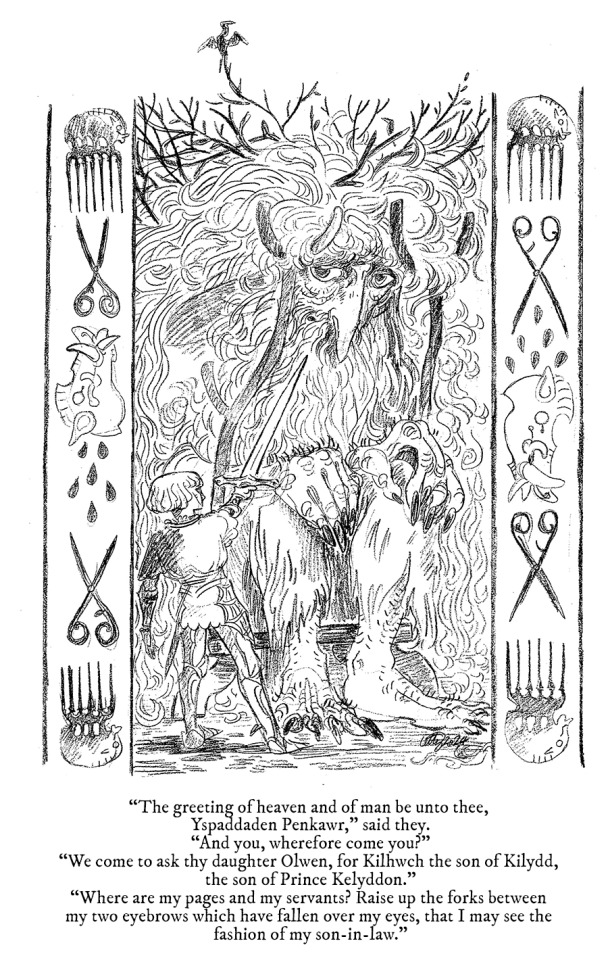
Doing a lazier version of @mortiscausa's fantastic arthurian drawing challenge! I'm using the prompts to inspire some pencil drawings based on the Mabinogion's tale of Kilwhch and Olwen (which in turn is the basis for a book I'm working on). First up, "Quest."
(edit: reuploaded the image without embarrasing typos oops!)
#arthuriana#folklore#drawing challenge#illustration#fairytale#giant#knight#legend#myth#british mythology#welsh#welsh folklore
216 notes
·
View notes
Text
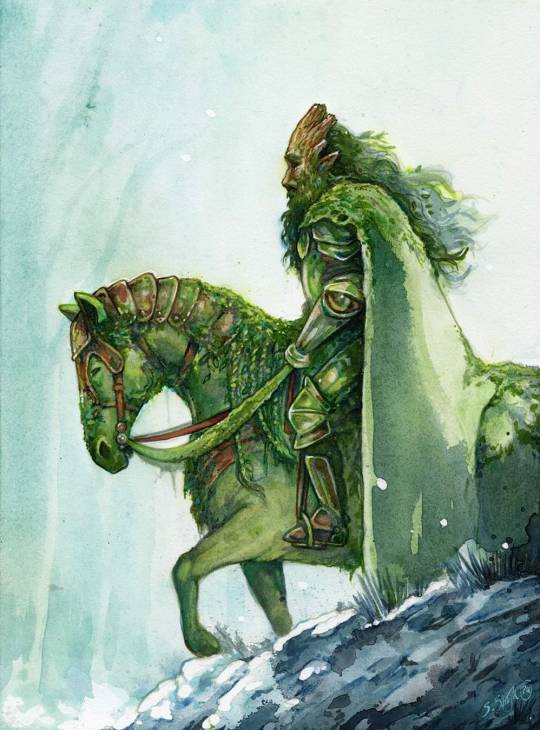
"Green knight"
The tale of the Green Knight really resonated with me. I just loved the image of this imposing emerald figure striding through a snow-covered forest, its path leading to Camelot. I made this painting for the upcoming Bad Apple art auction, which is centered around the theme of "Arthurian Legend". The auction will start at 5 PM EST on March 28 on the BA Facebook page.
The painting is 21 x 30 cm (incl. white border) on 300gr aches watercolour paper. It's created with a mixture of watercolour, markers, coloured pencils and gouache
#sylvia strijk#artists on tumblr#illustration#my art#fantasy art#traditional painting#mixed media#king arthur#myths and legends#green knight#the green knight#arthurian legend#fantasy character#fan art#fairytale#watercolour#original artwork
191 notes
·
View notes
Text

reindeer tale by Aksenova Natalia
#reindeer#winter tale#winter fairytale#snowy#winter woods#my upload#silvaris#fairy tale#enchanting#magical landscape#fantasy#myth#princess#queen#lady#woman#maiden
208 notes
·
View notes
Text









stimboard for : a fairykin with trinkets, nature, flowers, and muted greens
x | x | x x | x | x x | x | x

#💫stim#💫for you#💫blue line | queue!#fairy kin#fairykin#fae kin#faekin#pixie kin#pixiekin#faerie kin#otherkin#fantasykin#fantasy kin#mythkin#myth kin#mythical kin#mythicalkin#fairytale kin#cw bugs
97 notes
·
View notes
Text
The first 7 are specific subgenres that I struggle with, others are thrown in for fun. Please don't say "how could you forget X?" I didn't. I'll add an option for those who have very strong opinions about something not on here. No options for "I don't read" or "none of these." This poll is not for you, sorry!
Feel free to give your reason, but remember that this is about a genre you really wish you liked, not "ugh I hate this genre, it's awful." Looking forward to seeing your responses!
#booklr#bookblr#book community#bookish community#book talk#fiction subgenres#high fantasy#hard sci fi#myth retellings#fairytale retellings#urban fantasy#splatterpunk#historical fiction#historical romance#speculative literary fiction#cozy fantasy#science fantasy#my polls
63 notes
·
View notes
Text
Me: *reads any scholarship by Tolkien or Lewis, any mythology, any fairytale, any defense of fairytales, anything hinting at the One True Myth*
Me: I want to make something beautiful So Bad that I will keel over and die if I don't.
#the one true myth#tolkien#cs lewis#inklings#fairytales#mythology#christians who love mythology and stuff
49 notes
·
View notes
Text

joker love week 2023: myths & fairytales
#myart#ren amamiya#akira kusuru#satanael#persona 5#persona 5 royal#im actually happy with this one so yay#the prompt was myths and fairytales and uh idk satanael counts right#i really am just a satanael enjoyer so LOL#pretend its a magic prince au idk
560 notes
·
View notes
Note
Your post re: Salem's attitudes towards magic got me thinking about "Why spend our lives trying to redeem these humans, when we can replace them with what they could never be?" from Lost Fable again. I'm finding it a little difficult to blame people for believing she thinks the current crop of humans are just inferior when the only subject on offer in that sentence is "these humans." Of course when you stop to think for two seconds why Salem says or does anything she does it makes total sense that her hangup is with the gods, but that just makes me wonder even more why write the script like that? How unreliable is the direct dialogue in Jinn's vision supposed to be taken vs. her narration? (The simplest read of that episode seems to be of course the narration is biased per the question asked, but otherwise it's a frame narrative for the flashbacks which may or may not be more objective portrayals of events. The fact that the characters are also physically witnessing these scenes means they can't be 100% objective I think, but still leaves open the question of what's skewed and by how much.)
Unreliable or not, it's just a surprisingly absolute statement to put in her mouth considering how often we're invited to question her motivations everywhere else.
i do take the dialogue in the lost fable to be accurate to what the characters said, perhaps with some smudginess if what we’re seeing is ozpin’s memories exactly – in which case the dialogue in scenes he wasn’t present for is suspect because it’s what he imagines was said based on what salem told him, and the rest is probably closely accurate paraphrase because no one could be expected to remember the exact wording of conversations from several thousand years ago! but even then i would expect the parts he was there for to be reliable enough.
so much rides on the lost fable and specifically this one line that it would be beyond cheap for the resolution to be “she didn’t say that at all, actually.”
the first time i watched the lost fable, i did intuitively interpret that line as salem alluding to the gods – so i think there’s probably some degree of her statement reading as ambiguous or not ambiguous depending upon how one habitually uses the word “redeem.” specifically: how precise one is about the verb requiring an indirect object.
to ‘redeem’ something means to take some action to settle a debt, or redress a wrongdoing, which—inherently—implies the presence of a creditor or wronged party. in some contexts, the implied creditor is only an abstraction (think “the city’s robust public transportation is its only redeeming quality”—redemption is used here in a figurative sense to mean that the one making the statement dislikes everything but the city’s transit system); and in casual speech it’s fairly common to leave off the indirect object if it isn’t necessary to identify the wronged party (think the common phrasing of “so-and-so redeems themself”).
but while it isn’t incorrect to drop the indirect object, necessarily, there always is an indirect object; it isn’t possible to redeem a debt or a wrong that doesn’t exist, nor to have a debt without a creditor or a wrong without someone wronged. (as an aside, this is why redemption arc discourse tends to always be arguments about forgiveness—redemption does, inherently, definitionally, necessitate forgiveness—and this is also why i’m pedantic about differentiating ‘redemption arc’ vs ‘atonement arc’ vs ‘villain-to-hero arc’ and dislike the popular usage of redemption arc as an umbrella term.)
anyway, in simpler terms: when salem says “redeem these humans,” the apparent meaning of the next clause depends on whether or not one is predisposed to hear that phrase as a clipping and mentally append the implied indirect object, which makes her complete statement “why spend our lives trying to redeem these humans [from my sin in the eyes of the gods] when we could replace them with what they could never be?”
<- and then the question becomes, which “them” is she referring to? “these humans” or the gods who will judge whether redemption has been earned? her elision of the gods is entirely within the realm of common vernacular, and salem is a character who regularly circumlocutes (and earlier in the lost fable itself we have ozma’s quizzical “what are you saying?” signaling that salem’s speech is cryptic or confusing – because ozma doesn’t understand her; this is an intended trait versus the writers fumbling), and she says this in a moment of emotional distress (which she mostly bottles up, but while ozma is explaining all of this to her she’s leaning on the desk with her arms folded, listening intently – this is the same posture she has when she’s huddled in the shadows making herself miserable with conjurations of her children in 8.4).
so there’s quite a bit of weight here on the side of, “salem just discovered that her partner has been manipulating her into serving the gods she abhors throughout their entire relationship, she’s deeply shaken, she isn’t awesome at clearly articulating her thoughts in general; is it really surprising that she might misspeak to the tune of saying ‘them’ in reference to an (elided but necessarily implied) antecedent of ‘the gods’”
it (clearly) isn’t going to occur to most viewers as an obvious interpretation of the line, but i think it’s well within the bounds of what is reasonable for the narrative to later reveal that salem really meant this, particularly given how deliberate and how clear the storytelling themes are. definitely a risk, because some section of the audience is undoubtedly going to feel lied to and cry retcon, but rwby takes creative risks all the time.
and then there’s the ‘fairyales of remnant’ piece of it – the anthology is very much in dialogue with the lost fable across the board (on this see also ‘the two brothers’ presaging the thematic treatment of the brothers in v9, and ozpin’s paired commentaries on ‘the infinite man’ + ‘the girl in the tower’ being discussions of truth, propaganda, and forgiveness). so why does ‘the shallow sea’ begin like this:
Long ago, before the fish had scales, before the birds had feathers, and before the turtles had shells, when our god still walked and crawled and slithered the earth, there were only Humans and animals. (And Grimm. There have always been Grimm. There will always be Grimm. But those creatures don’t figure in this story, so just put them out of your mind, if you can.)
and end like this, after a story about the god of animals leading their chosen people to transform by submersion in magical waters, to the horror of those humans who refuse to change:
From that moment on, there have been animals, Humans, and Faunus. And the descendants of the Humans who turned away from our god’s great gift have always carried envy in their hearts. To this day, they resent us for reminding them of what they are not and what they never can be.
humans and animals (and grimm) -> animals and humans and faunus, and the last line – the mythic explanation for human hatred of faunus – is a nearly direct repetition of the last thing salem says in the lost fable?
now obviously not everyone can be expected to read ancillary material like the fairytale anthology, and that’s why the shell game with the implied indirect object matters; but it is interesting that ‘the shallow sea’ is stated to be a very old oral tradition (one which “contains deep truths,” no less) and that it repeats that line in a context that is quite plainly not about genocide – but rather cultural pride in the face of intense, often violent, persecution.
this story also 1. explicitly belongs to a closed tradition, and 2. is (obviously) one ozma knows despite there being no indication that he’s ever reincarnated as a faunus. which – together with the story’s age – adds up to at least the implication that it is possible he heard this story from salem, because the reasons she might be conversant in ancient faunus oral traditions are. well. obvious.
…and if that’s so, then ‘the shallow sea’ as written in the fairytale anthology completely recontextualizes salem’s last statement in the lost fable as salem quoting from a faunus creation myth both she and ozma knew in order to express her rejection of the brothers’ mandate, which would 1. neatly explain why ozma seems to have understood exactly what she meant even though none of the lost fable witnesses picked up on it, and 2. provide an elegant and very simple opportunity to ease the general audience into this revelation by having a character in vacuo retell this myth, using that same closing line. you don’t even need to mention salem directly – the turn of phrase is memorable enough that a lot of viewers will go “…why does that sound eerily familiar” and that plants a seed for later. (or if you’re going for more of a sudden record scratch moment, salem is the one declaiming.)
from a character standpoint, it also makes a lot of sense for salem to respond to ozma in this way – his liking for stories is, one presumes, not a new thing that developed after the ozlem kingdom’s collapsed, and he also clearly isn’t just cynically using fairytales to deceive and manipulate – else he wouldn’t have apologized to the kids by referencing ‘the girl who fell through the world’ and comparing himself to alyx. stories are just important to him and part of how he communicates.
so if salem heard everything his god told him and then said “no, none of that matters, why spend our lives trying to redeem these humans when we could [paraphrases the conclusion of a story where the hateful envious people who refuse to change are simply sent home and not allowed to live in the harsh but free new world with the people who chose to embrace change]” – she made an effort to say what she meant in his language, and what she meant was either 1. figuratively associating the brothers with the envious humans who were sent home and “these humans” with the faunus who were now free to determine their own fates, or 2. “okay yeah these humans aren’t great, have you considered more faunus as a solution” (<- this would be extremely funny if it turns out the shallow sea is a more literal story than i think it is, but i think it’s much less likely).
more broadly, to the question of why the line is written that way – i can only speculate based on what i would be thinking in the writer’s shoes, and the overall structure of the narrative around salem – but i imagine the absoluteness is sort of the point. it’s meant to be a really shocking and frightening thing to hear coming out of her mouth, while also being, if you pause to think very precisely about what she said, quite plausible as a verbal stumble – the alternative antecedent of “the gods” for “them” is implied and eliding the indirect object of “redeem” is common vernacular – and then there’s this other possibility hinted in an ancillary text that she might have actually been quoting a story as a verbal shorthand both she and ozma understood.
there’s a narrative expectation that the viewer will be right there with the kids making the same snap judgment about what salem meant – because i think the kids all absolutely did take this at face value as a statement of genocidal intent. the story itself is structured like a nesting doll such that each new revelation appears at a glance to be the whole story, but isn’t and in fact has large gaps and details that don’t add up which become glaringly obvious as soon as you reach the next layer and look back, but if you’re paying careful attention as you go it’s also quite possible to piece together the missing pieces.
delivering information this way trains the audience (…mostly) to expect that the information we’re given is incomplete and maybe not wholly accurate. the advantage here is that even if the vast majority of the audience is completely blindsided by a specific reveal, for most viewers that’s going to feel really exciting – this happened in v9 with the lore reveals about the brothers, massive overnight reversal in the mainstream fandom views of darkness with the general mood being that it was cool – as opposed to feeling tricked or lied to by a “retcon.”
and that builds up a certain kind of trust, that the story is a puzzle but it isn’t going to cheat. it’s also a bit of a challenge or an invitation for the audience to try to figure out what’s coming, like a mystery.
with salem, i’d bet that one line in the lost fable is supposed to seem weirder and weirder the more you think about it, because… why doesn’t it track with anything she says before that point in the lost fable? why does the story begin with salem waxing poetic about humanity’s virtues? why does the narrative make such a big deal out of nobody knowing what salem wants AFTER the main characters witnessed a seemingly open-and-shut declaration of her “true” intention?
at the same time, the amount of explanation required to argue for an alternate interpretation – even if it’s really not complex or a reach – compared to the ease of just taking the statement exactly at face value, in and of itself is both a misdirection (most of the audience will take the path of least resistance, and hopefully enjoy the journey the story takes them on while leading them to the eventual right answer) and sort of the thesis with respect to the storytelling themes. salem thinks coolsville sucks!
but i am also very willing to consider (because of my own intuitive reaction to the line) that the writers perhaps did not mean for it to seem quite as unambiguous as the general audience and most of the fandom ended up taking it, because if you’re spending a lot of time immersed in a specifically theological context regarding redemption (which the writers probably would’ve been, given the importance of the religious narrative in the lost fable and in relation to this line in particular) – and if you’re also in the habit of being very precise and careful about how you phrase things (which is true of how rwby is written in general) – and if you’re writing what might be the most critical episode in a complicated puzzle box story, whose fulcrum is a red herring that is also meant to provide a clue to anyone who thinks to look at it more closely and with an open mind — then yeah i can see a scenario where the writers may have felt that the specific wording of salem’s statement was more ambiguous than it actually is. in which case the echo in ‘the shallow sea’ might have been a bit of an effort to correct course by giving the subset of fans invested enough to read the fairytales (<- the cohort most likely to be keen to unravel the puzzle) an additional hint. who knows.
#thinking about it as a writer i think#salem quoting the myth is the most likely answer just because#that’s the simplest way to do the reveal – you just need a reason for some character#to retell the myth and that’s EASY#and then you can build from there#and it also recontextualizes not just the line itself but also The Relationship#from the face value biased narrative of ‘salem manipulated ozma for her own sinister ends’#to ‘salem fluently spoke his allusive legends-and-fairytales language and she really did love him’#and ‘ozma and salem understood what she meant perfectly well. because they’d been married for over a decade’
35 notes
·
View notes